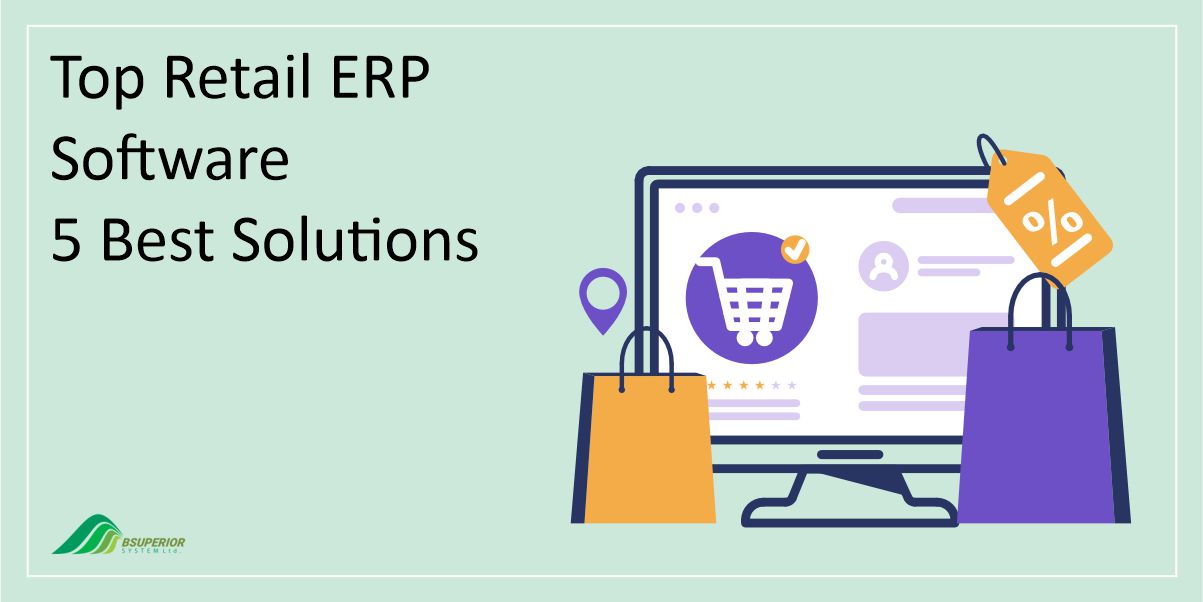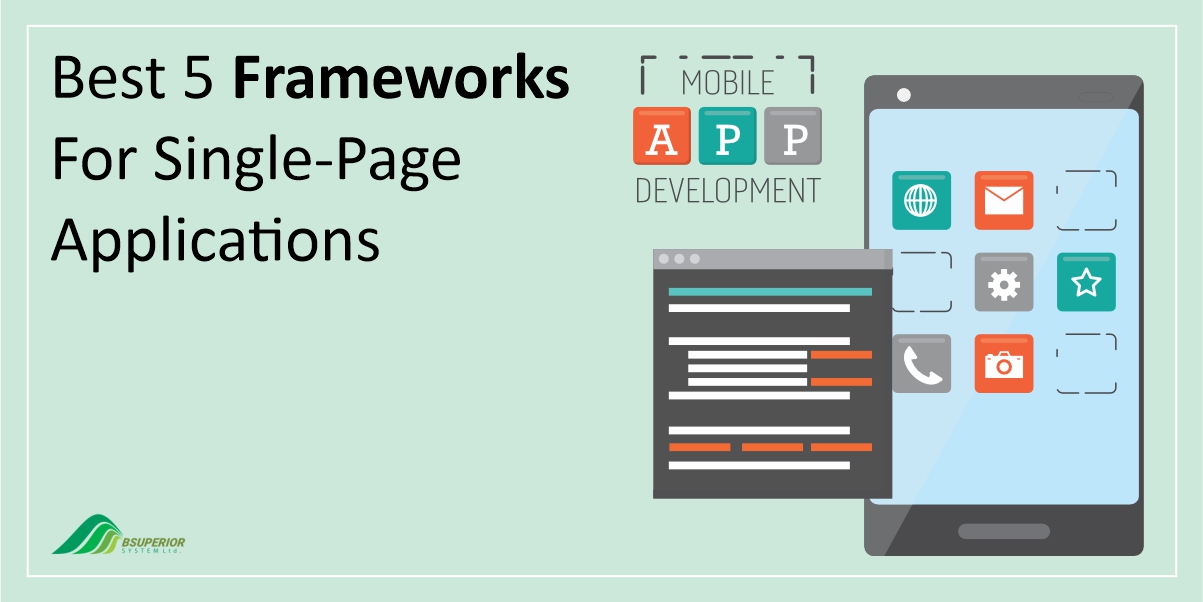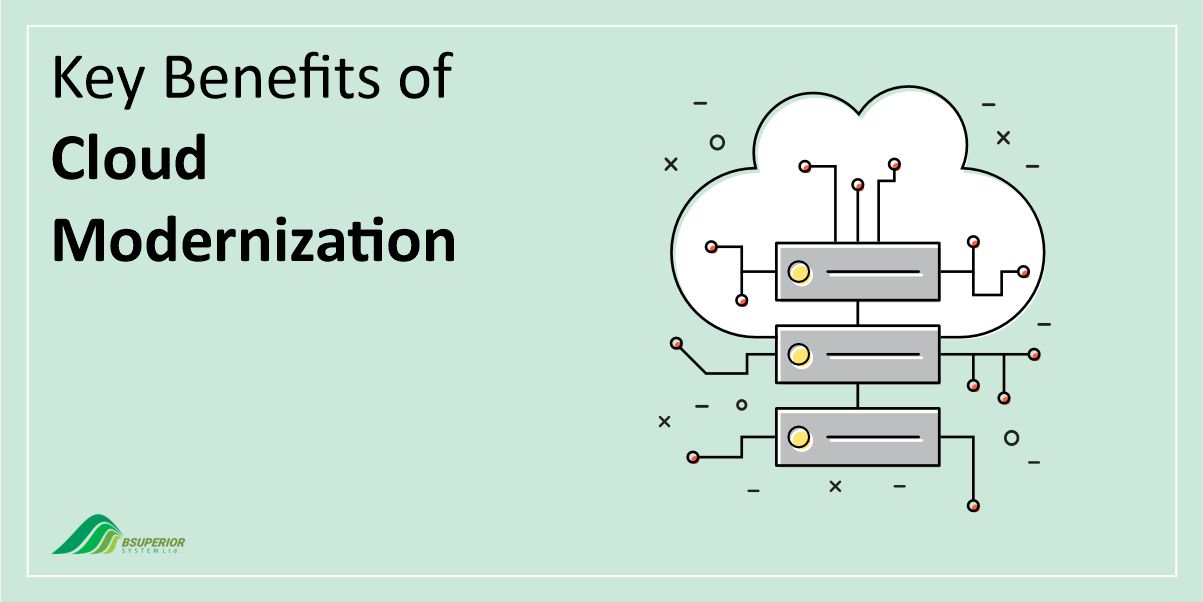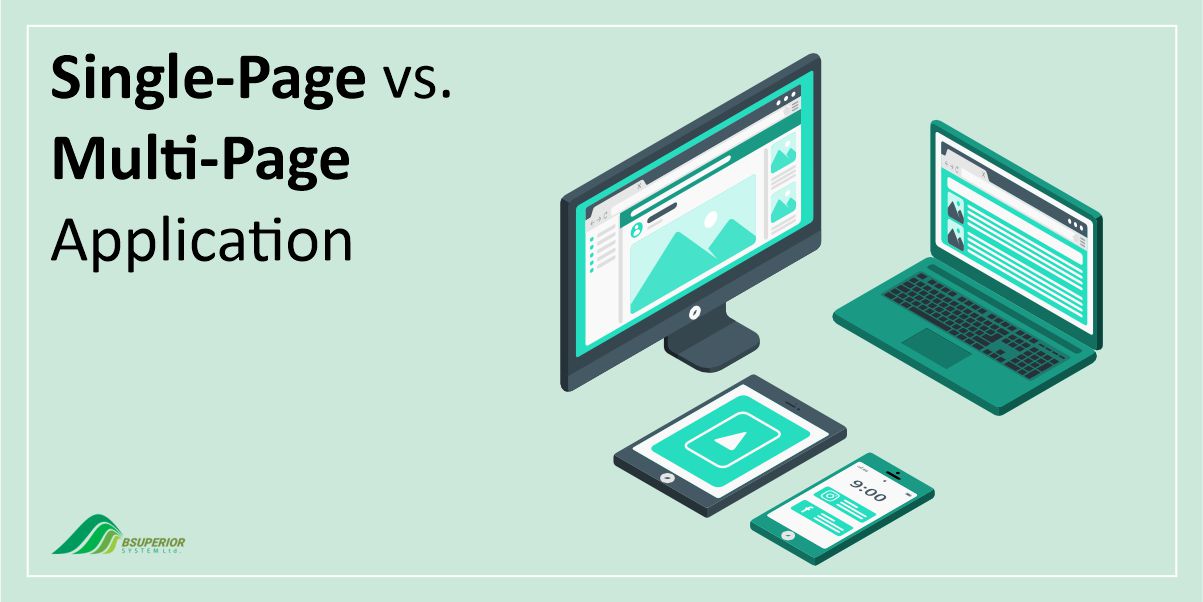10 Best Ecommerce ERP Software in 2024
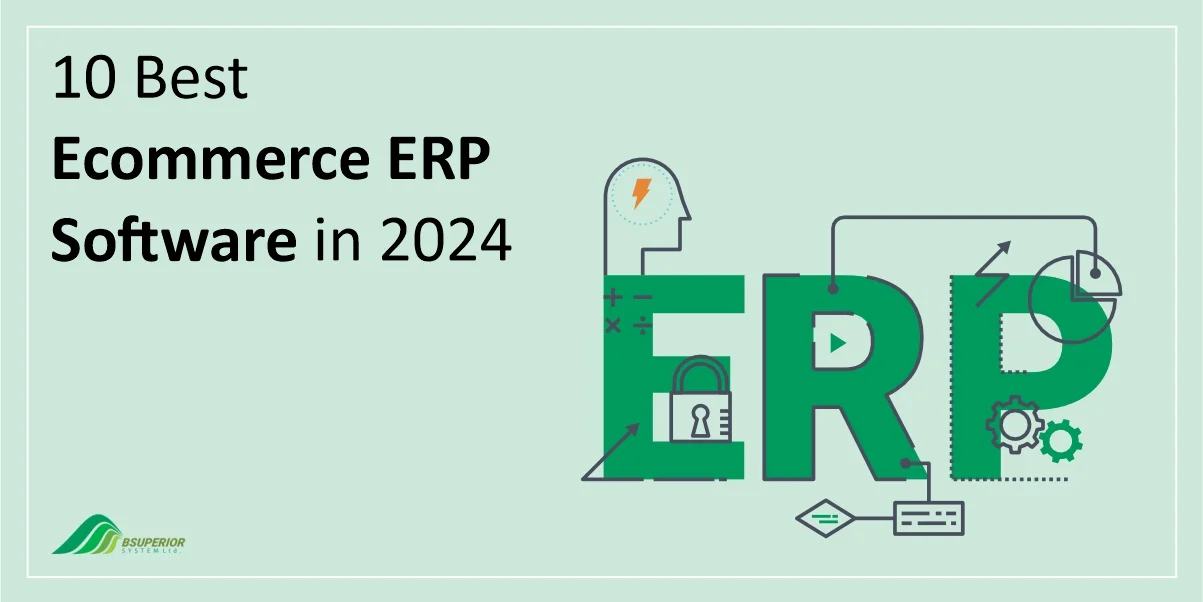
In today’s competitive online marketplace, having the right e-commerce tools is essential for business success. While ERP software is becoming increasingly crucial for e-commerce businesses, finding the perfect fit for your online business can be a daunting task.
With so many options out there, it’s like trying to navigate a maze of tech jargon and complex features. But don’t worry, we’ve done the legwork for you and compiled a list of top-notch e-commerce ERP software to simplify your search. Stay tuned.
What is ERP in e-Commerce?
In the fast-paced world of e-commerce, Enterprise Resource Planning (ERP) – a single integrated platform – serves as the backbone of efficient operations.
E-commerce software enables businesses to manage online sales and marketing, while ERP software automates back-office functions like finance, sales, and operations. A combined e-Commerce ERP solution integrates the best of both worlds into a single, user-friendly platform.
Specifically designed for online businesses, these solutions seamlessly synchronize online orders with inventory and supply chain management tools. The e-Commerce module allows you to create a fully functional web store with a shopping cart, shipping options, and secure payment processing.
Behind the scenes, the ERP system manages your inventory, calculates tax, and handles all the intricacies of order fulfillment.
By combining these essential functionalities, you can empower your online business with a single solution that automates operations, streamlines processes, and ultimately fuels growth.
This unified platform eliminates data silos and fosters seamless collaboration across departments, leading to increased efficiency and improved customer satisfaction.
How Can ERP-Integrated e-Commerce Help Your Business?
If you integrate ERP software with your e-commerce platform, you can make your online business more efficient and customer-friendly. ERP software can help you with different aspects of your business, depending on what you sell and what software you use.
Some of the things ERP software can do for you are:
- Optimize Order Placement: ERP integration automates the order placement process, ensuring a seamless transition from checkout to fulfillment. This includes calculating shipping costs, generating shipping labels, and triggering notifications to customers about order status updates.
- Keep Customers Informed: Automated communication is a hallmark of ERP integration. Your customers receive real-time updates on order status, delivery notifications, and any shipping delays.
- Change Prices Quickly: Changing prices within product categories can be time-consuming without ERP integration. With this functionality, you can easily adjust prices across multiple products without the need for manual data entry.
- Update Inventory Automatically: ERP software can keep track of your inventory and product details. As orders are placed and inventory levels change, ERP integration updates product availability in real-time. This prevents out-of-stock scenarios and ensures customers receive accurate product information.
By using ERP software, you can automate many of your online business processes. This will reduce the chances of making mistakes or upsetting your customers, and save you time and energy that you can use to grow your business.
Read more: Best ERP Software For the Small Manufacturing Industry [Top 10]
Choosing the Right ERP System for Your e-Commerce: 5 Key Considerations
Implementing an ERP system can significantly impact your business operations. Carefully evaluating various options is crucial to ensure you choose the best fit for your needs. Here are five key factors to consider:
- Functionalities and Features: Choose a system with features specific to your critical needs, such as robust inventory management for businesses with high turnover. Prioritize essential functionalities over secondary features.
- Integrations: Ensure seamless data sharing between your ERP system and existing software solutions used across various departments.
- Cost: Evaluate total expenses including system purchase, implementation, and other resources. Optimize value by choosing a system whose features directly benefit your business operations.
- Implementation: Prioritize user-friendly systems with accessible interfaces and minimal training requirements. Consider vendor-provided implementation support for a smooth transition.
- Scalability: Select a system capable of accommodating future growth and evolving requirements. Prioritize solutions with clear upgrade paths and reliable ongoing support.
Best Ecommerce ERP Software
While ERP systems offer a wealth of benefits for e-commerce businesses, not all ERP solutions are the same. Choosing the right ERP software is crucial for aligning with your specific business needs and goals. To assist you in this decision, below you’ll find seven top ERP software for e-commerce in 2023. These are:
- Microsoft Dynamics
- SAP ERP
- Oracle NetSuite
- Acumatica
- Brightpearl
- Blue Link ERP
- MRPeasy
Microsoft Dynamics
Microsoft Dynamics 365 is a comprehensive and flexible platform that empowers businesses to manage their operations, finances, and customer data seamlessly.
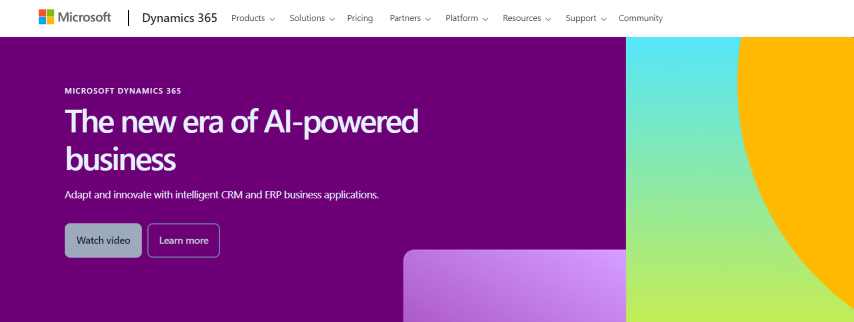
Unlike other ERP solutions that offer a single product, Dynamics 365 caters to diverse business needs by providing a range of product bundles.
Learn more: Benefits of ERP in Healthcare [To 6 Benefits]
Each product is tailored to specific areas such as sales, marketing, operations, customer service, human resources, finance, and field service. This flexibility allows businesses to select the bundles that align with their unique requirements.
Key Features
Here are some of the features of Microsoft Dynamics 365:
- Customer Relationship Management (CRM)
- Order Management System (OMS):
- Finance Management:
- Marketing Automation
- Inventory Management
Pros
- Comprehensive set of features and capabilities to address a wide range of business needs
- User-friendly dashboard for real-time insights into key performance indicators
- Seamless integration with various systems and tools for a unified view of operations
Cons
- High upfront costs which may be too much for smaller businesses
- Complex interface may pose a learning curve for new users
- Requires technical expertise to implement and maintain the system effectively
SAP ERP
SAP ERP is a powerful cloud-based ERP solution that empowers e-commerce businesses to harness the same business intelligence capabilities as the world’s largest organizations.
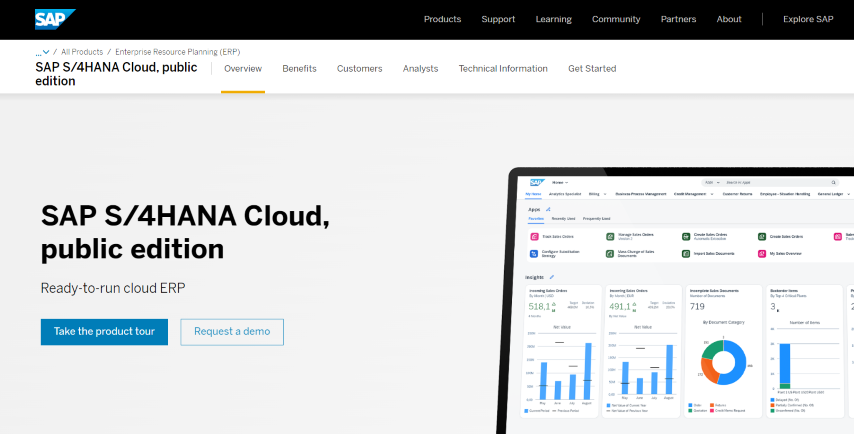
It provides businesses with a comprehensive suite of tools to optimize operations, streamline processes, and gain a deeper understanding of their customers and products.
Key Features
E-commerce businesses can benefit from a range of useful features that help them streamline operations, improve efficiency, and enhance customer satisfaction. These features include:
- Industry-Specific Customization
- Automated Order Entry
- Real-Time Order Updates
- Custom Pricing Flexibility
Pros
- Extensive training resources and documentation to facilitate user onboarding and adoption
- User-friendly interface and intuitive navigation for streamlined data management
- Enhanced flexibility and accessibility with remote access capabilities
Cons
- Occasional software glitches and bugs reported by users
- Support response times may vary and could be perceived as slow in some cases
Oracle NetSuite
Oracle NetSuite streamlines operations, enhances supply chain visibility, and simplifies financial management for e-commerce and retail businesses. Its centralized platform empowers businesses to manage multiple stores seamlessly.
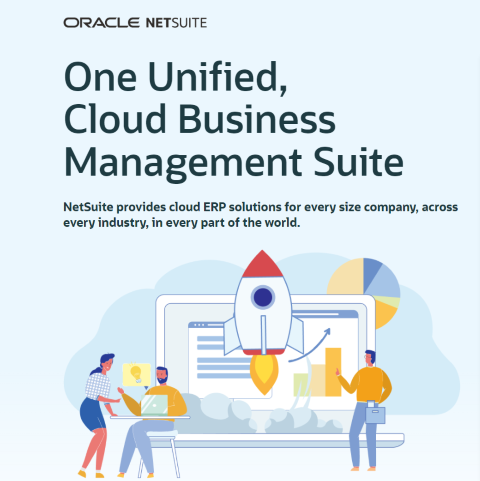
With customizable dashboards and support for over 190 currencies and 27 languages, Oracle NetSuite provides comprehensive insights into business operations.
Learn more: ERP vs. CRM: Which is the Right One For You?
Key Features
Oracle NetSuite offers the following key features for e-commerce businesses:
- Cloud-based accessibility
- End-to-end supply chain management
- Financial planning and management
- Streamlined order management
Pros
- Flexible and Adaptable Features: NetSuite allows you to customize and scale its features according to your business needs. You can choose from different modules, user seats, and contract lengths, as well as modify the templates and code your own solutions.
- Powerful Business Intelligence and Finance Tools: NetSuite is known for its strong BI and finance capabilities. It automates processes like billing, accounting, and reporting, so you can focus on financial planning, predictive analysis, and strategic actions.
- Workflow and People Management: NetSuite helps you manage your people and workflows better. It has an HR module, SuitePeople, that connects HR data with other data across the platform, such as financial, procurement, project, payroll, planning, and budgeting.
Cons
- Price and Customization Costs: NetSuite’s pricing model can be expensive for smaller businesses, especially when considering customizations and additional add-ons.
- Customer Support Limitations: The basic support package offers limited hours of support, and users have reported that technical assistance can be overwhelming for less technical staff.
- Suitability for SMEs: While NetSuite claims to be an ERP solution for small and mid-size enterprises (SMEs), smaller organizations may lack the resources to effectively use its customization capabilities and support requirements.
Acumatica
Acumatica is a cloud-based ERP system designed for small and midmarket eCommerce businesses. It utilizes cutting-edge technologies and offers several industry-specific editions, such as Construction, Manufacturing, Retail-Commerce, and Distribution.
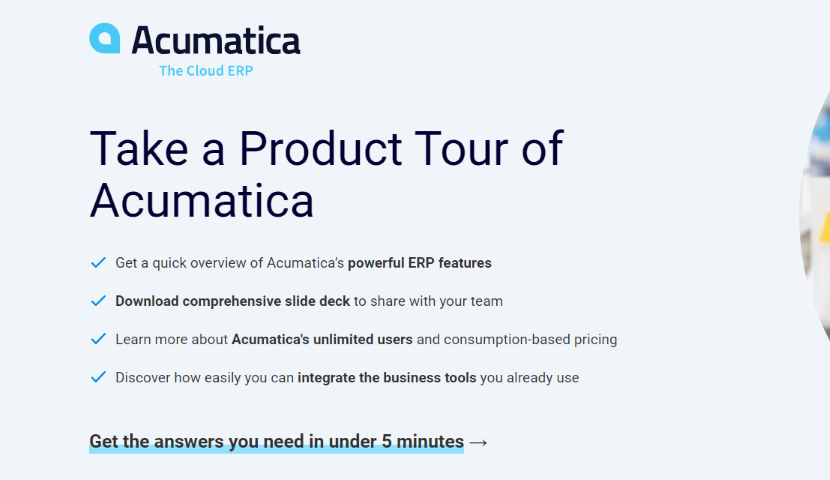
The Retail Edition is specifically tailored to the needs of eCommerce companies. Additionally, Acumatica’s open architecture and numerous integrations contribute to its future-proof design and long-term scalability.
Key Features
- Omnichannel Management: It seamlessly manages inventory levels, customer relationships, and orders across all sales channels.
- Integrated Ecosystem: It helps you utilize a vast network of pre-built integrations with global partners and complementary applications.
- Global Reach: It expands your business internationally with multi-currency, multi-language, and multi-company functionality.
Pros
- Suitable for mid-market businesses with multiple warehouses.
- Offers pre-configured editions tailored to various industries.
- Open architecture allows for seamless integration with various platforms and applications.
Cons
- Requires a consult call to obtain pricing information.
- Has a high learning curve.
- The implementation process is lengthy and complex.
Brightpearl
Brightpearl is a cloud-based software that helps businesses manage their omnichannel retail operations. It combines various functionalities into one platform, including orders, inventory, financials, and customer relationship management.
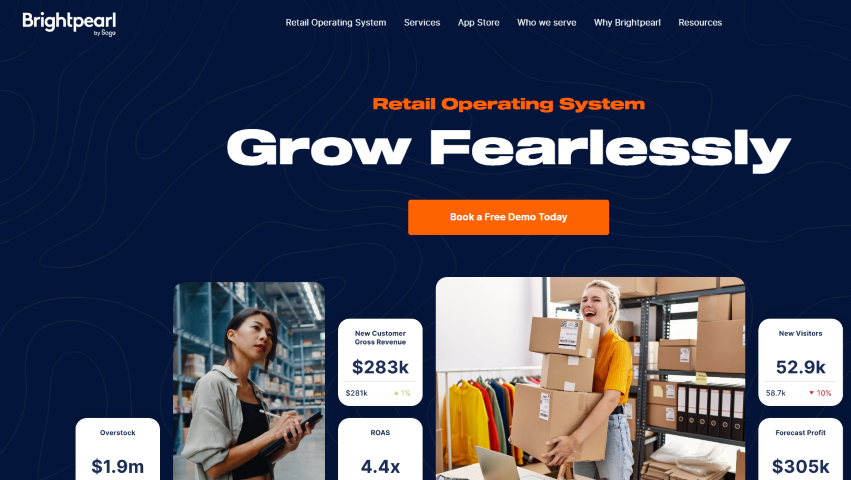
Key Features
- Inventory Management
- Customer Order Management
- Shipping & Fulfillment
- Warehouse Management
- E-commerce Analytics
- Real-time Reporting
Pros
- Provides all the necessary features to effectively track and manage your business operations.
- Actively improves to meet user needs and incorporate new features and functionalities.
- Allows any team member to access and manage customer interactions effortlessly.
Cons
- Cost can be a barrier for some businesses.
- Users have restricted options to personalize the dashboard layout and information display.
Blue Link ERP
Blue Link offers a comprehensive ERP system specifically designed for retail and wholesale businesses. It offers many features such as accounting, inventory management, and order entry for B2B and B2C websites.
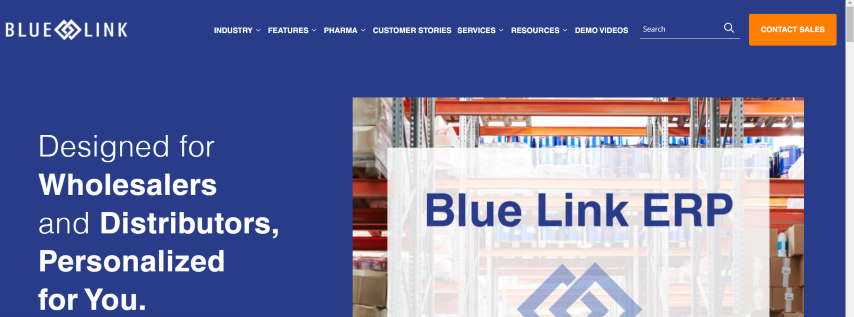
The best thing about Blue Link is that it has special ERP e-commerce integrations with other platforms such as Amazon, Ebay, Shopify, and Magento.
Key Features
Blue Link describes itself as the all-in-one accounting and inventory ERP software. Some of its features for e-commerce companies are:
- Inventory Management: Blue Link inventory management features work well with other features for a comprehensive solution.
- Sales Analysis: Useful information on inventory sales by customer, total units, and total sales helps you make the best choices for your business.
- Warehouse Shipping: Get the best assistance to improve your shipping workflows.
Pros
- Allows users to easily tailor inventory fields to their specific needs.
- Generates visually appealing and informative reports for data analysis.
- Provides a clear overview of daily sales and operational performance.
Cons
- May experience slowness during certain operations.
- Additional support requires paid subscriptions.
MRPeasy
Designed specifically for small and medium-sized businesses, MRPeasy allows you to manage every aspect of your operations, from production planning and inventory control to customer relationships, purchasing, team collaboration, and even accounting.
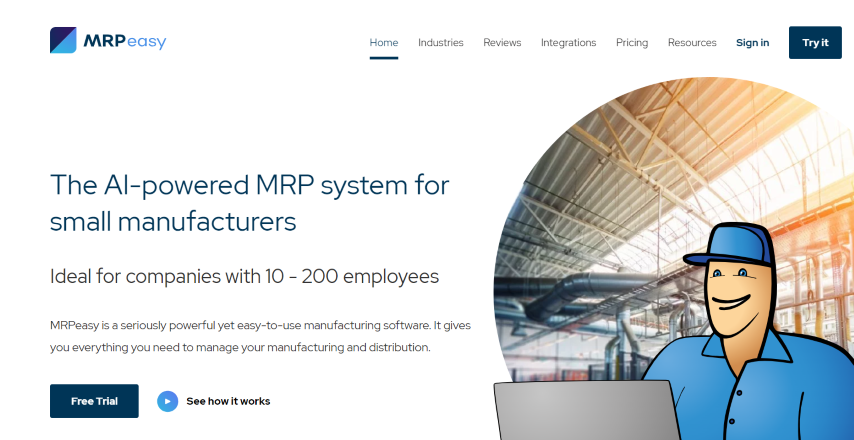
MRPeasy’s powerful reporting and forecasting tools offer valuable insights into your operations, helping you identify areas for automation and process improvement.
This translates to increased efficiency, productivity, and ultimately, growth for your manufacturing business.
Key Features
MRPeasy offers a comprehensive suite of features designed to streamline manufacturing operations, including:
- Production management
- Inventory management
- Supply chain management
- Invoicing
- User-specific access permissions
Pros
- Simplifies production scheduling and reduces manual effort.
- An affordable option for small and medium-sized businesses.
- Adapts to individual business needs with configurable functionalities.
Cons
- Phone support is not available, potentially hindering troubleshooting.
- While user-friendly, it lacks some advanced features desired by more complex businesses.
Integrating the Best ERP Systems with BSUPERIOR
BSUPERIOR flawlessly integrates with leading ERP systems like Oracle Netsuite and Microsoft Dynamics 365. This seamless partnership streamlines your entire shipping process, making it faster, easier, and more efficient.
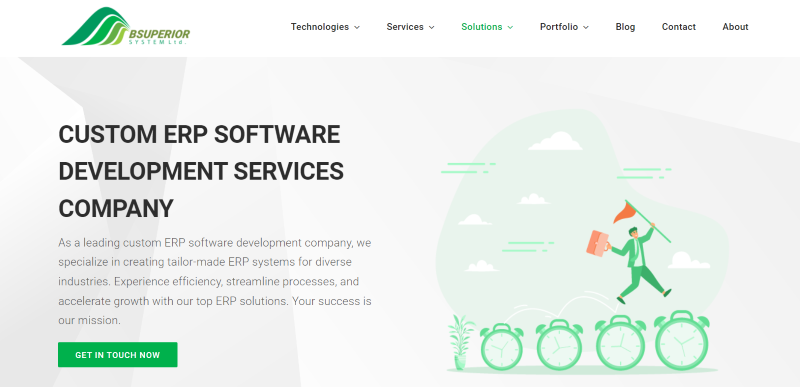
At BSUPERIOR, we’re experts in custom ERP software development, crafting tailor-made solutions for businesses across various industries.
Our top-notch ERP solutions are designed to boost your efficiency, streamline your processes, and accelerate your growth. Your success is our mission, and we’re passionate about helping you achieve it.
Ready to add the power of BSUPERIOR to your ERP system? Contact our experts today and discover how we can help you take your business to the next level.
Final Words
So, the verdict is in: connecting your online store to an ERP system is a game-changer for both customer service and loyalty. This powerful tech can give your e-commerce business the edge it needs to stand out from the crowd.
However, choosing the right ERP from the vast pool of options can be a tough task. Hopefully, this exploration of some top contenders has provided you with valuable insights.
Remember, the key is to ask yourself the right questions and ensure your chosen ERP perfectly aligns with your business needs. Don’t hesitate to do your research and find the perfect match to unlock a new era of efficiency and customer satisfaction.
We value your input and believe this content may enhance our services. However, it's under review. If you see room for improvement, please use the "Report an issue" button below. Your feedback helps us excel.
Contact us today at –– and speak with our specialist.

